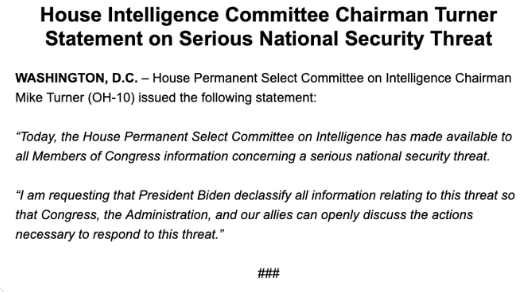Determined to bring more transparency to government and protect Alaskans’ privacy rights, U.S. Senator Mark Begich Tuesday co-sponsored a bill that would put an end to the secret court rulings on controversial government surveillance programs.
This bill would require the Attorney General to declassify significant Foreign Intelligence Surveillance Court (FISC) opinions, allowing Americans to know how broad of a legal authority the government is claiming to collect information, like phone records, under the PATRIOT Act and Foreign Intelligence Surveillance Act.
|
|
“I remain deeply concerned over the reports of the government collecting millions of Americans’ phone records. I’ve co-sponsored this bill because we need greater transparency and accountability in our government to prevent overreach and to protect against an unnecessary invasion of Americans’ privacy,” said Begich. “In the coming weeks I will continue to push for a better balance between protecting our safety and protecting our Constitutional rights.”
The Foreign Intelligence Surveillance Court (FISC) is a special federal court tasked with authorizing requests for surveillance both inside and outside the United States. Because of the sensitive nature of these requests, the FISC is a “secret court.” The FISC rulings, orders, and other deliberations are highly classified. The Court’s rulings can include substantive interpretations of the law that could be quite different from a plain reading of the law passed by Congress, and such interpretations determine the extent of the government’s surveillance authority. Some information included in the Court’s orders and rulings is necessarily classified, related to the sources and methods of collection used by intelligence agencies. However, the substantive legal interpretations of what the FISC says the law means should be made public.
“Alaskans highly value their privacy and their right to privacy,” said Begich. “Our Alaska Constitution specifically protects this right from being trampled on while ensuring national security information isn’t at risk.”
This legislation accommodates national security concerns by allowing the Attorney General to declassify only a summary of the Court opinion if the Attorney General determines the full opinion can’t be declassified without undermining national security. If the Attorney General determines that even a summary of an opinion would undermine national security, the Attorney General is required to provide a report to Congress describing the process to be implemented to declassify FISA Court opinions, including an estimate of the number of opinions that will be declassified and the number that are expected to be withheld because of national security concerns.
Begich fought to include declassification of court rulings and orders in the FISA Extension Act in December. The measure was not included, nor were additional measures Begich championed to ensure the privacy of Alaskans. Because of lingering concerns about privacy, Begich voted against the FISA Extension Act and the PATRIOT Act.
Begich was joined in his co-sponsorship by Senators Jeff Merkley (D-OR), Mike Lee (R-UT), Patrick Leahy (D-VT), Dean Heller (R-NV), Al Franken (D-MN), Jon Tester (D-MT), and Ron Wyden (D-OR).



